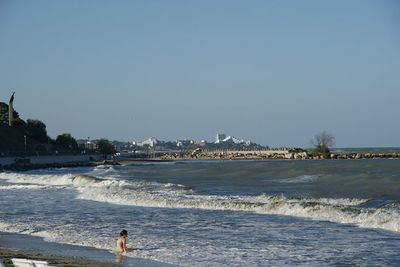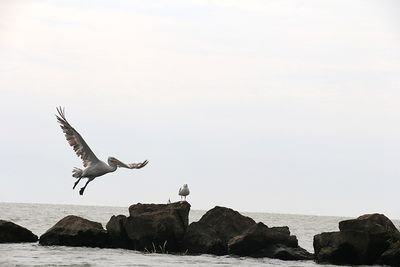Main Page

Dear visitor, this wiki serves as collaboration platform for transnational learning activities organised within the ERASMUS+ Consortium 'Inclusive Coastal Landscapes'. The wiki is coedited by all seminar participants. For more information on the COLAND project please also visit our project website.
Why coastal landscapes matter
Coastal landscapes across Europe are often characterized by overlapping and competing land uses. They are focus areas for settlements and infrastructure, especially road and train networks, and many industries and commercial zones that benefit from close access to harbours. Conversely, the tourism industry is also a major driving force with its own development dynamics and typical spatial patterns. All those economic potentials have attracted people to settle on the coast. This process is ongoing, leading to unsustainable development such as urban sprawl and irreversible consumption of soil and other natural resources. However, water-based recreation has various positive effects on human health and wellbeing – in relation to physical exercise and mental wellbeing, which is why on the one hand people love to visit the seaside on vacation while on the other hand poor or restricted access to waterscapes raises issues of social equity and spatial justice. The urban-land interface is also an important and often vulnerable habitat zone for flora and fauna which brings additional demands on such areas and also places them at risk from damage and degradation the territory. Being a pole of human settlement since early times, coastal landscapes are also often extremely rich in cultural heritage and form part of our collective memory and identity. Their sustainable and integrated planning, design and management is crucial for the mental, social, physical and economic well-being of many European citizens.
Goals of the CO-LAND online course
In the light of the sensitive nature of coastal landscapes and their relevance to society, economy and the environment it is vital that planners and designers learn how to manage these territories in a sustainable way. Course participants will develop a profound understanding of the specific character of coastal landscapes. They will learn which driving forces are influencing the landscape system and which impact types are most relevant for planning and design responses. This includes the global and European dimension since coastal landscapes are receiving increased attention worldwide. Participants will further learn about various approaches to landscape assessment in order to specify the challenges and potentials of a coastal landscape. They will have the opportunity to define and test assessment models and derive relevant knowledge for planning and design. Different approaches to strategy building, planning and design in the context of coastal landscapes will be introduced in the last phase of the course. On this basis, the course participants will be able to draft a strategy and a master plan for a coastal area taking economic, ecological and social aspects and current policies into account. In addition to the subject specific knowledge and methods the CO-LAND course further aims to foster transversal skills at various levels. This includes above all the following: virtual team work and creative application of ICT tools for international cooperation, team building and democratic leadership, analytical thinking, intercultural communication and creativity. The CO-LAND course wants to equip a future generation of planners and designers with relevant knowledge, methods and skills in order to transform our societies for sustainability.
The CO-LAND Team
This course is offered by a consortium of seven European universities and two NGOs. Each partner sends experts to the course who together form the teaching and tutoring team of the CO-LAND Course. Likewise, the learners will come from all institutions involved so that an international learning community will evolve in the process of each course delivery. The consortium partners come from different disciplines and bring in expertise in landscape architecture, regional planning, coastal geography, tourism geography, architecture and urban planning. This combination of expertise and skills creates a unique and enriching learning environment which is further enriched by its international and intercultural dimension.


